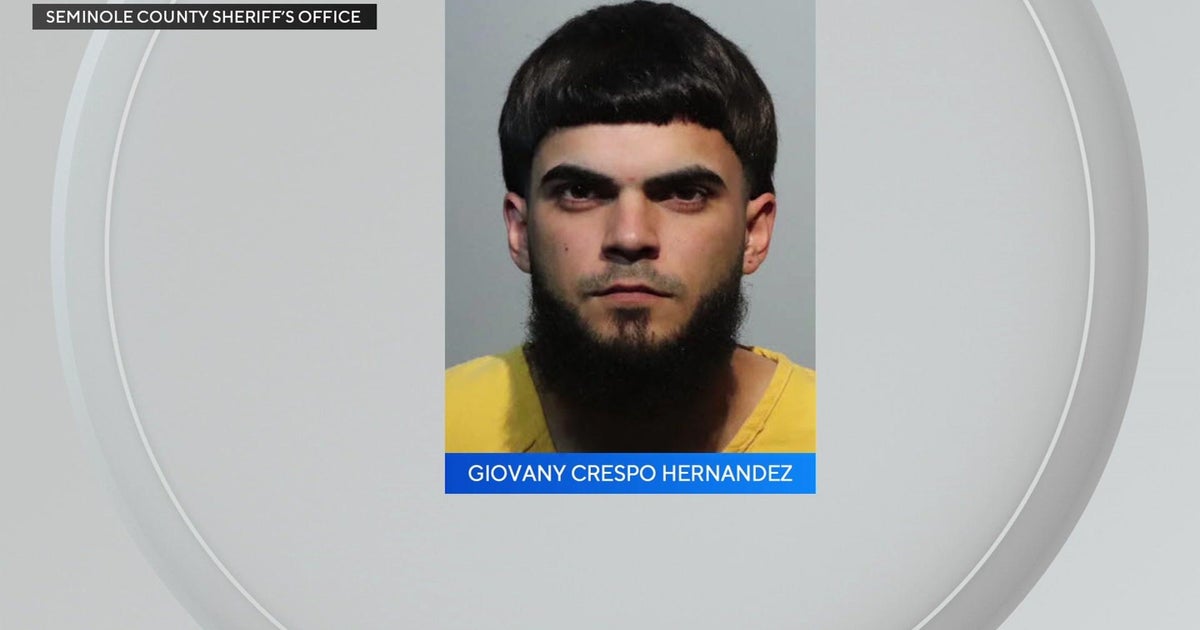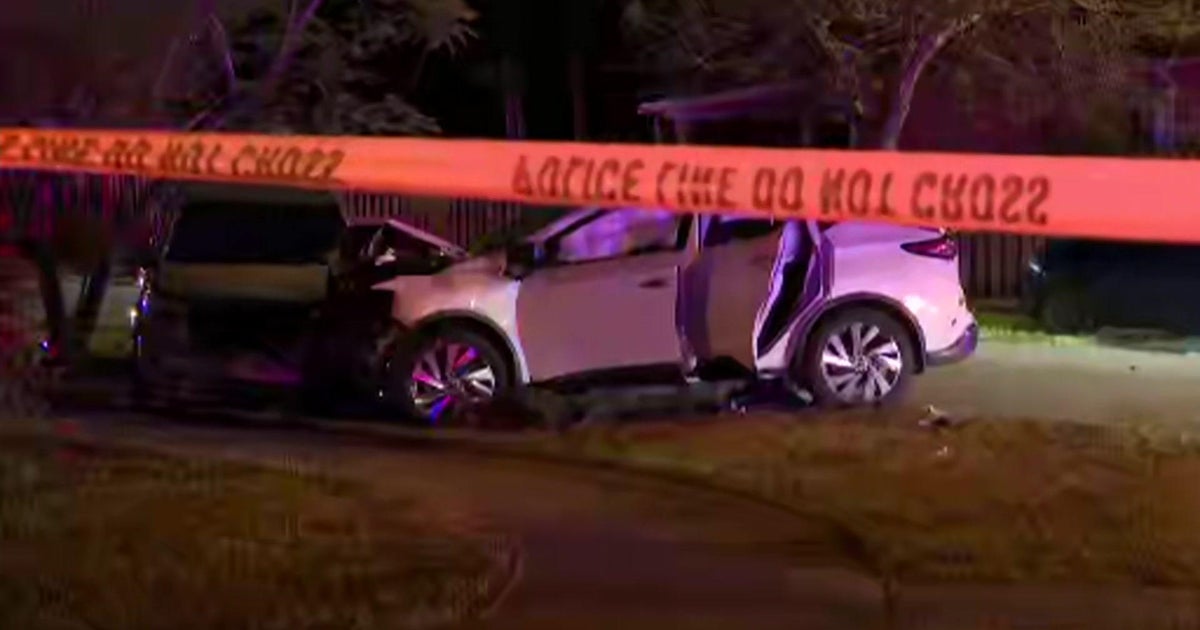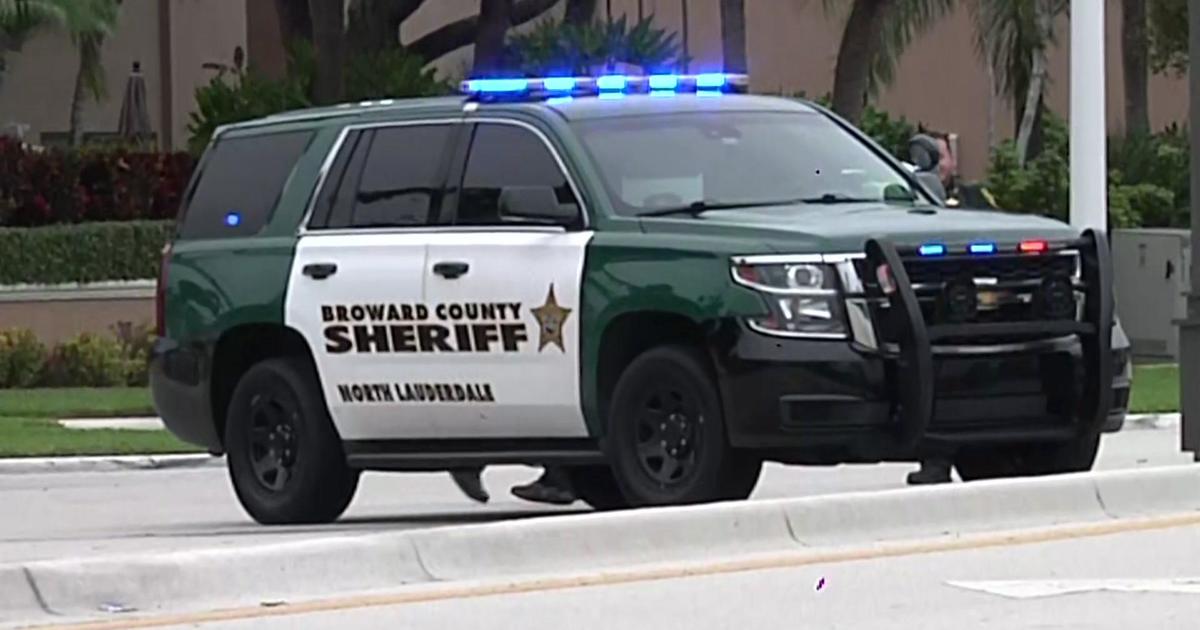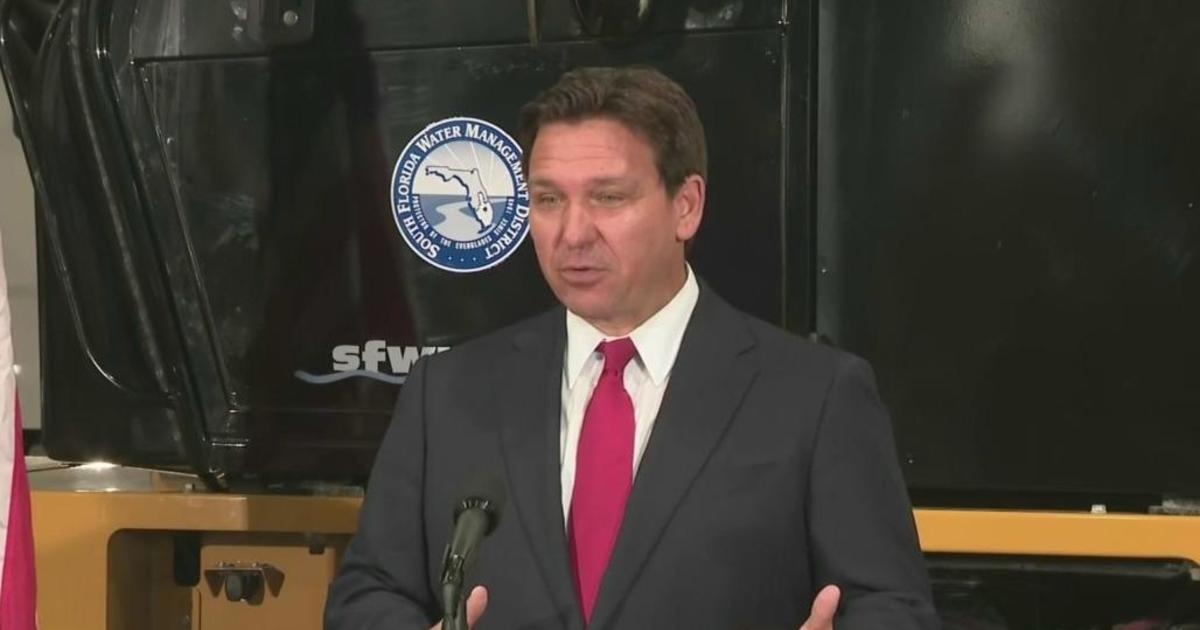CDC Confirms Florida's First Two Cases Of Coronavirus, Public Health Emergency In Effect
TALLAHASSEE (CBSMiami) -- The CDC has confirmed Florida's first two cases of coronavirus in the state.
Florida Governor Ron DeSantis confirmed the COVID-19 cases during a news conference Monday afternoon at the Florida Department of Health office in Miami.
The first patient is a man in his 60s who is hospitalized in Manatee County, the governor said. That individual has pneumonia and is in stable condition at a hospital. He did not travel to any areas impacted, so it is unclear how he contact the virus. He's currently in isolation.
The second patient is a woman in her 20s in Hillsborough County. That individual recently returned from northern Italy. She is in stable condition and remains in isolation at home.
WEB EXTRA: DeSantis News Conference in Miami On Coronavirus In Florida
"Despite these cases, the overall threat to the public remains low. With that said, we do anticipate that more will test positive and we have taken additional action to help contain the viruses spread," he said.
DeSantis said a total of 23 people in the state have been tested. The state is currently monitoring 184 cases, and almost 800 total have been monitored.
Late Sunday night, DeSantis issued an executive order directing state Surgeon General Scott Rivkees to declare a public health emergency as Florida tries to control the spread of the contagious disease, known as COVID-19.
WEB EXTRA: DeSantis News Conference On Coronavirus In Florida
The cases in Manatee and Hillsborough counties are the first in Florida, as the virus has spread to dozens of countries after starting in China. The second U.S. death from the disease was reported Saturday in Washington state.
RELATED: Washing Your Hands Is Best Defense Against Coronavirus, Not A Facemask
No vaccine exists for the virus, and federal health officials say a vaccine won't be ready for another year to 18 months.
Miami Mayor Francis Suarez also held a news conference Monday saying there are no confirmed cases in the City of Miami and doesn't know of anyone being monitored here.
Suarez said they are handling this as they would storm preps by working with emergency managers, the CDC, and the state health department.
He also said Miami Fire Rescue officials have come up with protocols if they encountered any suspected cases.
In addition, the city is working with leaders from the Ultra Music Festival to follow CDC guidelines for mass events. The EDM music festival has an estimated attendance of about 70,000 people, and takes place the weekend of March 20 at Bayfront Park.
So far, Ultra organizers said it has plans for extra hand-sanitizing stations at the three-day event, and will be promoting health tips related to coronavirus with attendees.
WEB EXTRA: Miami Mayor Suarez News Conference On Coronavirus
The announcement of the cases came a day after the Department of Health said state laboratories in Jacksonville, Tampa and Miami can now test for the coronavirus, instead of having to send samples to the Centers for Disease Control and Prevention in Atlanta. Deputy Secretary of Health Shamarial Roberson said that will shorten the time to receive results from tests.
Sending test kits to the CDC takes 3-5 days to get results. With the labs in Miami, Tampa and Jacksonville, results take 1-2 days.
In addition to Florida conducting its own testing, Roberson said Saturday the state has revised guidelines about which residents should be tested for COVID-19. The new guidelines are based on federal recommendations and include testing people who fall into two main categories.
The first group includes people who have recently traveled to and from China, South Korea, Iran, Italy and Japan and have fever and acute upper respiratory infections. Testing also is recommended for people who have been in close contact with someone who has tested positive for COVID-19 and are suffering from the symptoms.
In addition to those groups, Roberson said the Department of Health is recommending COVID-19 testing for people who have been hospitalized with fevers and acute upper respiratory infections but who have tested negative for influenza.
Roberson said people who fall into those categories and want to be tested should first call county health departments, which are charged with collecting samples. The collections are done by swabbing people's noses or throats.
The Florida Department of Health will continue to update details on the virus on its website.



